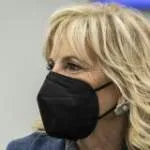(The Defender) Almost all of the baby foods that parents in the United States feed their children, whether purchased at the store or prepared at home, contain detectable amounts of toxic heavy metalsthat can impair brain development, according to new research published last week, which led to renewed demands for improved regulation.
A previous study by Health Babies Bright Futures (HBBF) found that 95% of pre-packaged baby foods tested were contaminated with toxic heavy metals including lead, arsenic, cadmium and mercury, sparking a congressional investigation and conversations about whether homemade baby foods are a safer alternative.
In an effort “to determine if homemade purees and foods purchased outside the baby food aisle have lower heavy metal levels than pre-made, store-bought baby food,” the donor-funded alliance of scientists and nonprofits recently tested 288 foods and examined more than 7,000 additional food tests from published studies.
HBBF “found no evidence to suggest that homemade baby food has lower heavy metal levels than store-bought brands,” lead author Jane Houlihan, the alliance’s research director and Charlotte Brody, its national director, wrote in their newly released report.
“Heavy metal levels varied widely by food type, not by who made the food,” notes the analysis from HBBF, which seeks to reduce infants’ exposure to damaging neurotoxins.
The alliance’s key findings include:
- 94% of all food samples we tested contained detectable amounts of toxic heavy metals: 94% of store-bought baby food and 94% of homemade purees and family brand foods.
- Rice cakes and crisped rice cereal are heavily contaminated with arsenic. They contain higher levels of inorganic arsenic (the toxic form of arsenic) than any other foods tested. Both stand out as foods to avoid for children and adults alike.
- Lead, arsenic, and cadmium levels are high in some fresh carrots and sweet potatoes. We recommend that parents vary the source by choosing from different brands, varieties, or stores each week to avoid accidentally serving a high-metal source often.
- The 10 most heavily contaminated foods consumed by babies, beginning with the highest, are rice cakes, crisped rice cereal, rice-based puffs, brown rice, rice-based teething biscuits and rusks, white rice, raisins, teething crackers (non-rice), granola bar with raisins and oat-ring cereal.
- The 10 least contaminated foods consumed by babies, beginning with the lowest, are bananas, grits, baby food brand meats, butternut squash, lamb, apples, pork, eggs, oranges and watermelon.
Mark Corkins, chair of the Committee on Nutrition for the American Academy of Pediatrics (AAP), considers the Aug. 11 study to be a logical follow-up to the one that HBBF conducted in 2019 — after which many experts encouraged parents to switch to homemade options.
With the publication of its new report, HBBF has “come back and said… ‘We sent shoppers into all sorts of stores and guess what? The food you’re making it from is high in heavy metals as well,’” Corkins told The Hill.
“The source is going to be the same no matter what,” he continued. “It’s going to be farms and produce grown in dirt and water that’s the same dirt and water that the other produce is grown in.”
In a statement released in response to the report, the AAP reiterated its call for “swift, comprehensive federal regulation of heavy metals in foods that babies eat.”
“In the meantime,” the group added, “families can reduce exposure by feeding babies a variety of foods.”
The House Subcommittee on Economic and Consumer Policy revealed last February that leading baby food manufacturers are “knowingly” selling products tainted with “dangerous levels” of arsenic, lead, cadmium and mercury — heavy metals that the U.S. Food and Drug Administration (FDA) and the World Health Organization have declared a human health hazard, particularly for infants and toddlers who are most vulnerable to their serious, often irreversible and sometimes deadly effects.
To date, however, the FDA has set limits for heavy metals in just two types of baby food: infant rice cereal and juice. The agency’s Closer to Zero plan identifies steps the agency “will take to reduce exposure to arsenic, lead, cadmium, and mercury from foods eaten by babies and young children — to as low as possible.”
But as HBBF pointed out on social media, the FDA is moving at a snail’s pace to take meaningful action, jeopardizing the neurological development and long-term health of countless babies.
Currently, the FDA’s deadline to propose draft action levels for arsenic is April 2024.
Our study on heavy metals in baby food came out in 2019, and every day that the FDA delays is another day babies’ developing brains are harmed by toxic chemicals. https://t.co/sVFX9wkdx3
— Healthy Babies Bright Futures (@HBBForg) August 11, 2022






